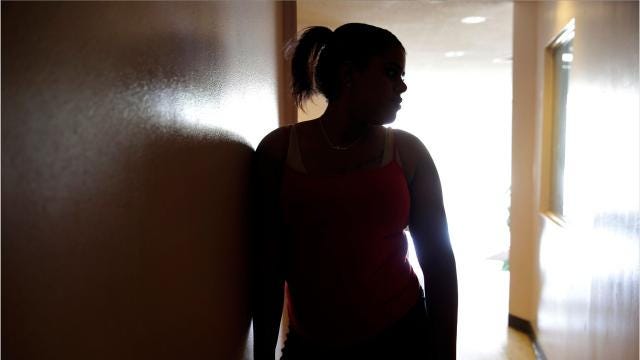
How can social services lose 18,000 children – and not look for them?
How can social services lose 18,000 children – and not look for them?
Opinion: Many of the children sold as sex slaves were in the care of social services when they went missing. Aren’t these agencies supposed to keep kids safe?
This year, an estimated 18,000 American children will disappear, but their families will not be looking for them. Neighbors will not canvas the streets. Our Facebook feeds will not show their pictures. And after six months, the records of their existence may close entirely.
This is the fate awaiting children who vanish while in the care and custody of America’s child-protection system. Some run to escape abuse. Some follow false promises of love and security. Still others are kidnapped outright.
No matter the reason for falling off the grid, many of these boys and girls will resurface on the black market as child sex slaves. According to the FBI, more than half of trafficked children in America were in the care of social services when they disappeared. That is a damning statistic for a system whose sole purpose is to keep children safe.
Arizona can close cases after 6 months
Withelma “T” Pettigrew, one of TIME magazine’s 100 most influential people, was one of those children in foster care who became a trafficking victim. T testified to Congress: “I spent, for the most part, the first 18 years of my life in the foster-care system. Seven of those years, I was a child being sexually trafficked on the streets, Internet, strip clubs, massage parlors … Traffickers, pimps, exploiters have no fear of punishment because they rely on the lack of attention that occurs when these young people go missing.”
Making matters worse, the National Center for Missing and Exploited Children found that “historically, many of these children were not being reported missing.” To correct that, federal law enacted in 2014 required that state agencies must report a missing child to law enforcement within 24 hours. Reports of children missing from care have since more than doubled.
But reporting a child missing is only a first step in what should be a 24/7 search. Every missing child counts, regardless of race, gender, age or social status.
The state is the legal guardian of these children, but Arizona law allows a case to be closed after the child has been missing from care for only six months. That responsibility should end only when the child is in a permanent and safe home — not because the child has disappeared.
Keep searching until they’re found

Giving up on finding a child after six months is contrary to the very purpose of being a guardian. Closing the books also gives predators a green light: If you can keep a kid hidden for six months, you’re home free. Predators should know that we will never give up on finding these children — ever.
Twenty years ago, families relied on newspapers, flyers and milk cartons to find a missing person. Today, social media can spread the news of a missing child in seconds. The ability to rapidly disseminate the word has saved many lives. Children who vanish from state care should be entitled to no less, and Arizonans would be eager to help.
Similarly, all of us can support the hard work of local law enforcement by becoming more aware of potential predators around us by checking the sex-offender registry.
Arizona would benefit from a robust conversation between law enforcement, child-protection workers, private agencies and the children and families who have lived through this experience. With a goal of modernizing and strengthening safety procedures, we can work to provide the same safeguards for children in state care that we would demand for our own.
Darcy Olsen is the founder and CEO of Gen Justice, which serves abused children through its pro bono Children’s Law Clinic and aims to reform the child-protection system to prevent future injustice. Reach her at darcy@genjustice.org.
SEE VIDEO
http://theunhivedmind.com/news/2021/02/03/how-can-social-services-lose-18000-children-and-not-look-for-them/
